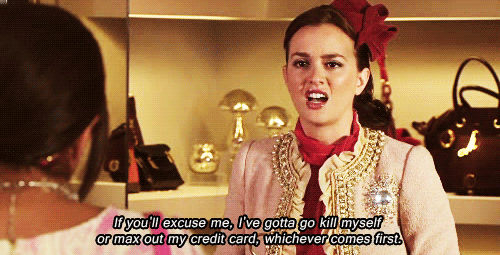
A Quarter Of Millennials Don’t Know What A Credit Score Is

As we all know (or at least as we all SHOULD know), a credit score is incredibly important when it comes to your financial future. Currently, an average American cannot hope to achieve a lot if their credit score is below a certain point. However, a new study shows that millennials know disturbingly little about how it all works.
Millenials do not know what a credit score is
LendEDU has recently conducted a survey to find out what the Millennials know about the credit score and the results are not the greatest. Namely, after interviewing over 500 people who are born between 1980 and the year 2000, they have realized that over a quarter of them simply cannot give you the correct definition of a credit score. And that is a big deal. For example, if you are planning to take out a car loan for the amount of 20,000 dollars that will take you 5 years of paying off, having a low score usually means that you will have to return 5,000 dollars more than those who have a good credit score. So, this little number certainly makes a huge difference in the life of an average American.
One might think that three-quarters of young people not knowing what a credit score is, does not sound all that bad, and they would be correct if the study stopped there.
They have a lot of false assumptions
 Out of the 74% of millennials who knew what the credit score is, 10% actually thought that the credit score is assigned to you at the moment of your birth by a financial institution. Others, (to be precise, another 10%) wrongfully assumed that the credit scores are given by the government as means for it to track financial institutions. And, lastly, one in every 20 people thought that your credit score is your place on the waiting list to get your own credit card.
Out of the 74% of millennials who knew what the credit score is, 10% actually thought that the credit score is assigned to you at the moment of your birth by a financial institution. Others, (to be precise, another 10%) wrongfully assumed that the credit scores are given by the government as means for it to track financial institutions. And, lastly, one in every 20 people thought that your credit score is your place on the waiting list to get your own credit card.
When they were asked if they can raise their credit scores by utilizing the credit, over 43 percent answered that they can. (Credit utilization is the ratio of how much debt you have accrued already and it puts the limit that your card is set with). As you should know, you should keep the utilization at as low of a percent as possible, not trying to max it out. And, when we are at maxing-out-the-credit-card, over a third of millennials (36.27 percent) thought that maxing out your card, and then promptly paying it back on time, will increase your score.
And, when it comes to the presumed ideas about a credit score, almost 5% actually thought that a lower credit score is a good thing.
As you can imagine, trying to decrease your credit utilization ratio is a great way to maintain a high credit score (or to improve a subpar one), in fact, it is probably the second best (the best is simply paying your bills on time and in full). Can you guess how many Millennials got that answer right? Only 17.23 percent. This shows that they lack the most basic of understandings when it comes to what the credit score represents.
How it actually works
 However, that does not mean that you should avoid going into the negative numbers with your credit card. After all, if you do it sparingly and pay the debt back in full and on time, you should not have any issues with your credit score. The most important factors to consider are monitoring your spending, and keeping the utilization under 30 percent.
However, that does not mean that you should avoid going into the negative numbers with your credit card. After all, if you do it sparingly and pay the debt back in full and on time, you should not have any issues with your credit score. The most important factors to consider are monitoring your spending, and keeping the utilization under 30 percent.
Another thing that Millennials do not seem to understand (well, at least 43.29% of them don’t) is that soft inquiries (like a background check) do not have a negative impact on the credit score.
The conclusion
 As you can imagine, it is not easy to relax when you realize that the new wave of Americans simply refuse to learn how banks and credits work, even if they do have a tendency to utilize their credits.
As you can imagine, it is not easy to relax when you realize that the new wave of Americans simply refuse to learn how banks and credits work, even if they do have a tendency to utilize their credits.
Now, more than ever it is needed to teach our children about the workings of the financial world. Start today.
More in Financial Adviser
-
Brewing Controversy: Unraveling the Bud Light Boycott
In a world fueled by opinions, the recent Bud Light boycott has stirred quite the commotion. It’s not your typical tale...
December 7, 2023 -
How LVMH Became a $500 Billion Luxury Empire
LVMH Moët Hennessy Louis Vuitton is a name synonymous with luxury and opulence. The brand has crafted not just products but...
December 2, 2023 -
Women Spend 20% More Per Year on Out-of-Pocket Health Costs
A recent report from Deloitte has brought to light a concerning issue in the world of healthcare – women spend a...
November 24, 2023 -
How Sound Baths Can Soothe Your Mind, Body and Soul
Have you ever been so caught up in a song that you felt the world melt away? Music, in its many...
November 18, 2023 -
What to Know Before Rebalancing Your Investment Portfolio
Managing an investment portfolio is akin to steering a ship through ever-changing waters. Periodic adjustments are necessary to ensure you stay...
November 11, 2023 -
Jeff Bezos and Fiancée Lauren Sánchez’s Extravagant $500 Million Superyacht
Get ready to set sail on a journey into the opulent world of Amazon founder Jeff Bezos and his fiancée Lauren...
October 31, 2023 -
How to File Your Taxes: A Comprehensive Guide
Filing your taxes can be daunting, but with the right knowledge and preparation, it doesn’t have to be overwhelming. Taxes are...
October 26, 2023 -
Make Your Kids Mini Master Chefs | Here’s How
For many of us, the kitchen is the heart of our homes – a place where magic happens, one dish at...
October 19, 2023 -
Deciphering Stock Market Sell Signals
In the fast-paced world of stock trading, understanding when to sell your investments is just as crucial as knowing when to...
October 12, 2023















You must be logged in to post a comment Login